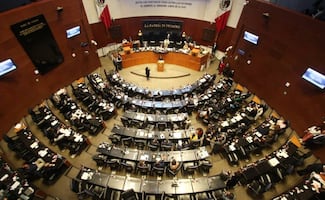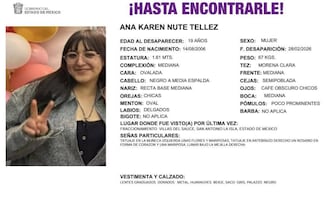Más Información

Jessica revive la nostalgia de la SEP en “Pancito Merge”; así se inspiró la ilustradora en el videojuego mexicano de Nintendo Switch

"El Mencho" tenía presentes a Los Alegres del Barranco; en cartas le hablaban del grupo musical que cantaba su corrido

Publican en el DOF decreto que reduce la jornada laboral a 40 horas; así aplicará la disminución año por año hasta 2030

Senado recibe iniciativa para acortar altas pensiones de exfuncionarios de CFE y Pemex; prevé ahorro de hasta 5 mil mdp anuales

“Ideal, aprobar el Plan General de Desarrollo antes del Mundial”: Patricia Ramírez, titular del Instituto de Planeación de la CDMX
In Mexico , discrimination is a deeply rooted reality. It is a phenomenon that hurts the population when they are the victim, but it's also a common practice in everyday life. Also, contrary to what you might expect, discrimination has been normalized to the point that, even when it is visible, it stops being relevant.
According to the National Survey on Discrimination 2017 , one in every five Mexicans (18+) have suffered discrimination in our country. There are several causes: skin tone, the way they speak, weight, height, the way they dress, social class, religious beliefs, age, and social orientation. Therefore, Mexicans discriminate themselves, and at the same time, they hate being an object of rejection.
Exercising
the most basic rights is the foundation of any democracy , but in Mexico , this is not possible yet. Over 20% of the survey participants said that they have been unjustly denied a right in the l ast five years , according to the study presented by the Inegi .
Public spaces
are places where discrimination is present , but it shouldn't be forgotten that it is a phenomenon that also exists in private : at home , inside families , and companies . Discrimination is not only about the lack of empathy , it is a basic form of violence that Mexicans practice between them , based on prejudices . Moreover, discrimination is the first step towards the annulment of the other .
While Mexicans are hurt by the mistreatment towards fellow citizens in the US., for example, here in Mexico , Centroamerican immigrants on their way to the US are humiliated . And this is only a small example of the multiple sides of discrimination.
In the past, it has been proven that in Mexico there isn't a community or country view . It's not gratuitous, then, that mutual rejection is an everyday expression of inequality and bitterness . Nevertheless, in the face of normalized discrimination , it is necessary to compare the other as a reflection of the individual self. For the creation of democratic communities, the concept of the “other” is basic because it translates into an individual conscience, in contrast with the rest, which is based on shared values.
Democracy
is based on diversity and shared life is constructed by differences, it couldn't be any other way. The study published by the Inegi is just a small sample of the urgent need, in the country and of the citizens, to make an effort to promote tolerance and acceptance towards the other . A society that rejected itself every day has no development possibilities.
gm
Noticias según tus intereses
[Publicidad]
[Publicidad]









